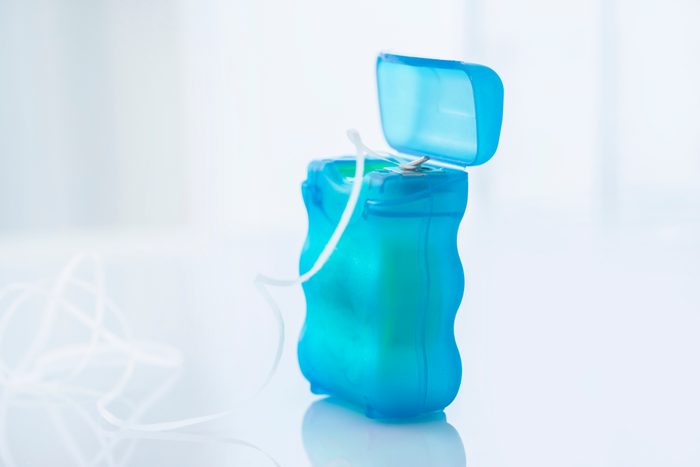
Maintaining good dental health does more than just keep your pearly whites bright. Recent research—such as one 2020 study—has found that poor oral hygiene is connected with other physical conditions, such as diabetes and heart disease.
A recent report from the American Heart Association also found a link between poor dental care and declining brain health. But even if you’re brushing, flossing, and up-to-date with professional cleanings, dentists say many of us are guilty of some lifestyle and oral health habits that could be doing our mouths more harm than good.
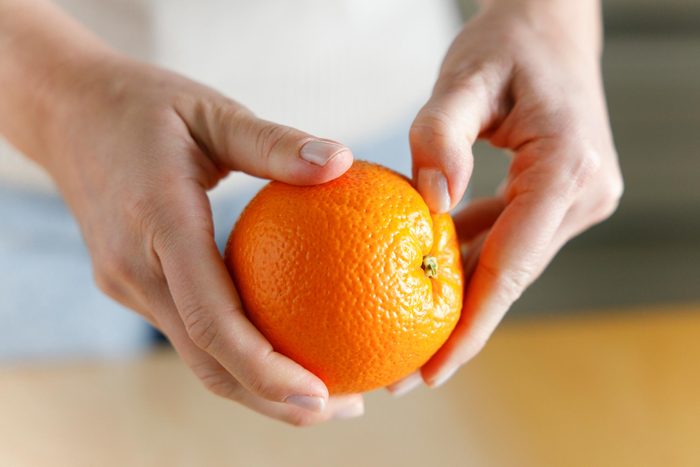
Your love for citrus
Most people are aware that soft drinks like sodas and seltzers are damaging to teeth, says Arthur Jeske, DMD, PhD, a professor and associate dean UTHealth Houston School of Dentistry. “Others may be less obvious,” Dr. Jeske says, like your morning smoothie with a squirt of lime juice or the lemon wedge you add to a beer or cocktail. This is because the high acidity levels in many fruits (even grapes and peaches are quite acidic) can cause demineralization, “which means [they] can literally dissolve your tooth enamel over time.”
Dr. Jeske’s recommendation: Drinking plain water after eating or drinking can help reduce fruits’ impact on your teeth.
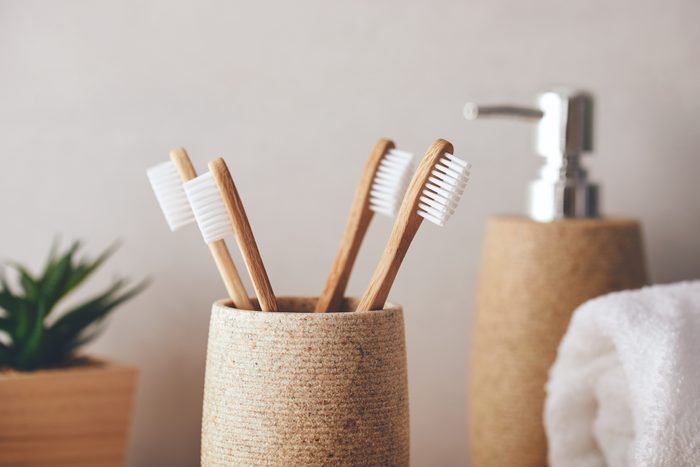
That firm toothbrush
“Many people believe brushing with firmer toothbrush bristles and abrasive toothpaste will make their teeth cleaner and whiter,” says James Galati, DDS, president of the New York State Dental Association. But these products (and heavy-handed brushing in general) can actually damage teeth by taking off the protective enamel and traumatizing gum tissue around the teeth—leading to receding gums and root exposure.
Instead, aim for soft-bristle brushes and toothpastes with fluoride and an ADA seal of approval, Dr. Galati says.
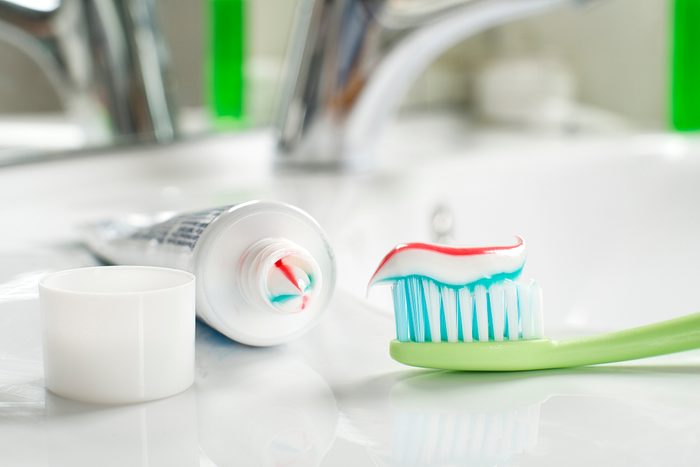
Overusing whitening toothpastes
Toothpastes vary widely in their abrasiveness, Dr. Jeske explains. A product’s Relative Dentin Abrasion Value (RDA) is categorized by low, medium, and high abrasiveness.
If you brush frequently, for instance, you may want to stick with a product on the lower end of the spectrum (this ranges from zero to 250, and Dr. Jeske says you can look up the RDA for specific products online). But he points out that most whitening toothpastes tend to be among the more abrasive. That doesn’t mean you have to avoid them altogether, but he recommends using them less frequently in your routine and swapping in a gentler toothpaste to avoid excessive wear.
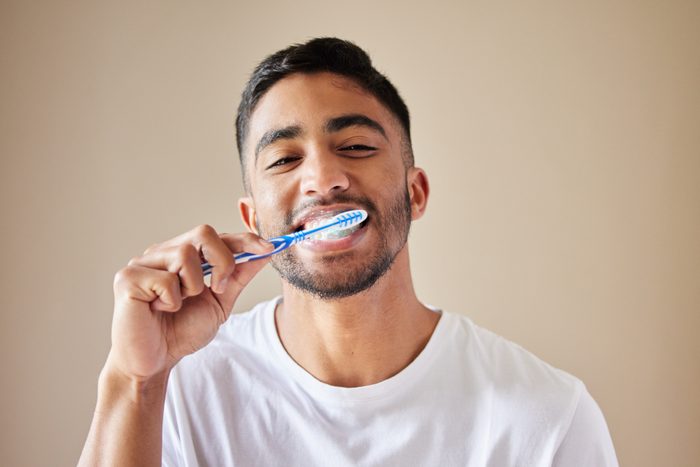
Brushing right after eating
It’s important to wait 15 to 30 minutes after eating or drinking before brushing your teeth, says Jacquelyn Schieck, DDS, MS, the primary doctor at Schieck Orthodontics in Minneapolis, MN. “[This time] allows the pH of the mouth to revert to neutral, which prevents brushing away enamel that’s been softened by acids in foods or beverages.”
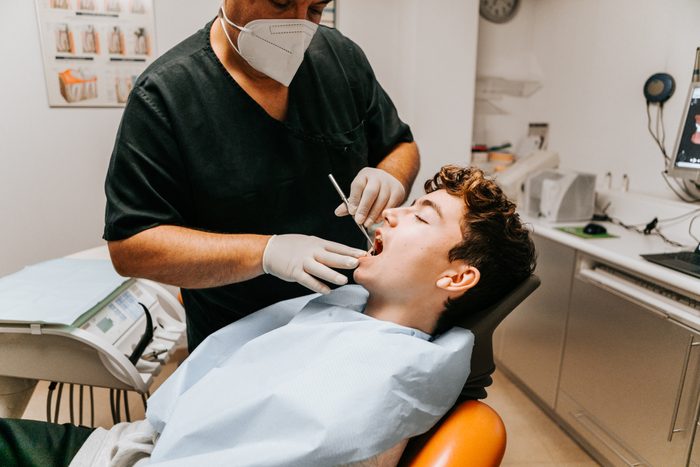
Improper flossing
If you floss daily, you’re already ahead of the curve when it comes to your dental health. Population research is limited, but a survey conducted by the Centers for Disease Control and Prevention (CDC) suggests less than half of Americans floss daily, and 20% of us never floss.
Still, “while flossing is considered a ‘gold standard’ for cleaning between the teeth and promoting gum health, it may not be as effective if used improperly,” Dr. Jeske explains. For example, interdental cleaners—tiny, round brushes with handles—are recommended over string floss for certain people, such as those with more advanced gum disease. Your dentist and dental hygienist can advise you on what type of floss is best for you and how to use it effectively.
Flossing technique is important, too: You want to be sure to thread your floss into your gums to make sure you’re effectively loosening food and other debris.
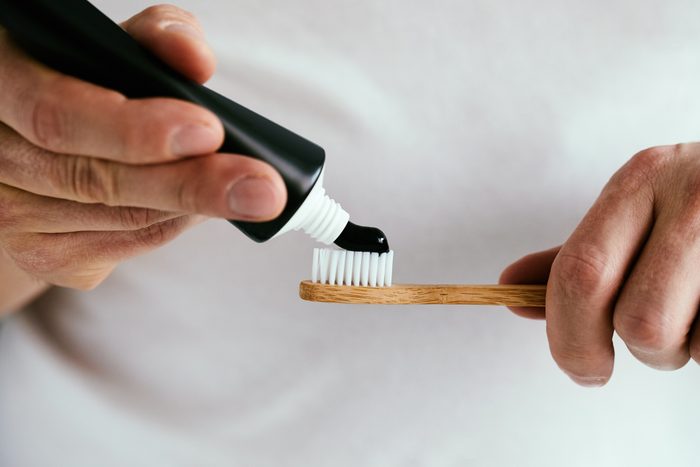
Charcoal toothpaste
Dr. Galati says that one of the more potentially harmful internet fads he’s seen is charcoal-based toothpaste, powders, or tabs. These products are often promoted as eco-friendly, “natural” teeth cleaners that can remove surface stains to whiten teeth and absorb bacteria that cause bad breath.
But Dr. Galati says that most charcoal-based toothpastes are very abrasive and can cause damage that makes your teeth more susceptible to decay and bone loss. Plus, “there are no studies showing they whiten teeth any better than standard toothpastes,” he says.

Your high stress levels
High stress levels and a demanding work or life environment have been linked to increased dental health problems, Dr. Galati says. Stress can make you more prone to grinding and clenching your teeth, for example, which leads to excessive wear. Unconscious nervous habits like chewing on fingernails, hairpins, pen caps, or ice can cause similar damage, Dr. Shieck adds.
Learn More About How Stress Is Ruining Your Dental Health, According to a Dentist

Lying to your dentist
Medical professionals are there to help you, not judge your habits. Accurate information—including your lifestyle habits like smoking, vaping, diet, and alcohol use, dental habits, and medications or supplements you take—is crucial for your dentist to properly identify dental problems and design the optimal treatment plan. “Some misrepresentations are easy to detect,” Dr. Jeske says, like if someone says they brush and floss twice a day but their gums bleed during a dental exam. “But others may confuse the diagnosis or delay it, resulting in additional harm” (and often, financial costs.)
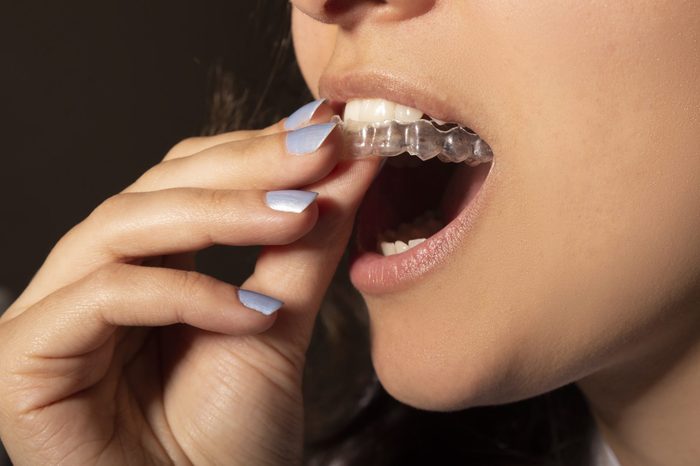
DIY orthodontics
“[This] is one of the most dangerous and concerning fads I’ve seen online,” says Dr. Schieck. The movement of teeth is a complex biological process that requires a highly-trained doctor’s oversight to avoid harmful consequences. “It’s amazing what people will try,” she says. “But trying at-home aligner systems in the absence of orthodontic guidance, using elastics or other household items to move teeth, or even attempting to 3D-print appliances yourself is not safe or effective.”
Keep up to date on all things health and wellness with The Healthy @Reader’s Digest newsletter and follow The Healthy on Facebook, Instagram, and Twitter. Keep reading:
